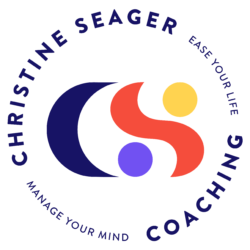When I heard Gretchen Rubin’s term “midlife malaise,” it hit me like a ton of bricks—that was me. I had been lost in my own life, just drifting along, not fully engaged in living. I was constantly wondering, Is this it? Is this all there is to life?
I knew something was missing, but I had no idea how to figure out what it was.
I knew something was off, but I didn’t know how to make it right.
I wanted to be happier, to enjoy my life, to be a better wife and stepmom, but how?
Then one day, I stumbled across a quote in Real Simple magazine. It said, “What’s the goal of your life? For me, it’s to make the people I love happy and have a good time with them.”
And I thought, That’s it. That’s what I want—to live with joy, with purpose, to actually feel alive in my own life. But then that question crept back in: how?
Maybe some people are just born knowing how to live that way.
Maybe I wasn’t wired for it.
Maybe I’d missed my chance.
If this sounds familiar, let me tell you: one sentence can change your life.
For me, that sentence was: “I know exactly what to do here.”
That simple phrase helped me break free from the endless cycle of “but how?” and start believing I already had the answers. Every time I repeated it, my brain shifted from feeling stuck to offering solutions. Suddenly, ideas came to me—small actions I could take to move forward. And each time I took action, I created proof that, yes, I did know how.
Instead of feeling frustrated, hopeless, and lost, I began creating real, meaningful change in my life.
That one sentence transformed everything. It helped me stop seeking and start creating the life I’d been longing for.
So, if you’re ready to stop searching and start creating an extraordinary life, let me help you. You can get through the hard things, and you can feel fully present and engaged in your life.
Life’s too short to spend it just getting by. It’s time to start creating the extraordinary life you deserve—and I can show you how.
Are you ready to find your one sentence?
As part of the benefits offered at Logan Health, employees get free coaching sessions. You can book a coaching session here.
Or, if you are not a Logan Health Employee, you can book a consultation to learn how to work with me here.
The LAST Free Monthly Masterclass f 2024 is on December 11, How to Abstain from over eating, over drinking, over scrolling, etc. You can see more info & register here. I hope to see you there!
P.P.S. Liked what you read? Join my email list, where I dive deeper into these concepts and teach you HOW to put them into practice in your everyday life. And don’t forget to follow me on Instagram (@christineseager_) or Facebook (@seager.christine), where I share both teaching moments and real-life examples of this work in action.




